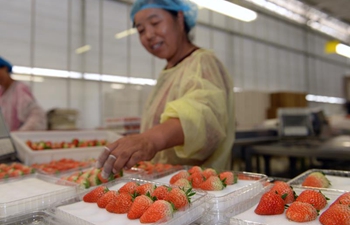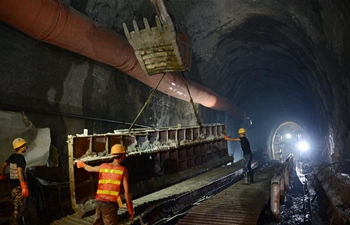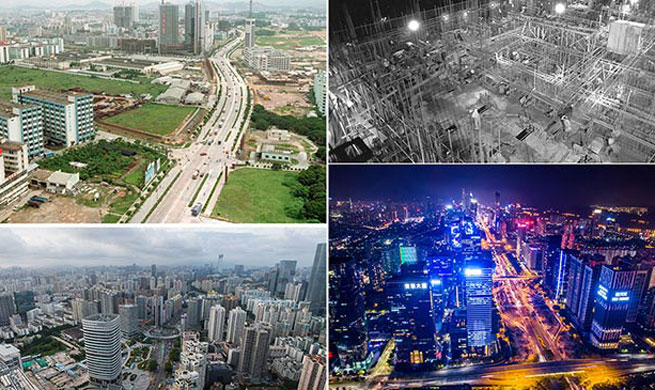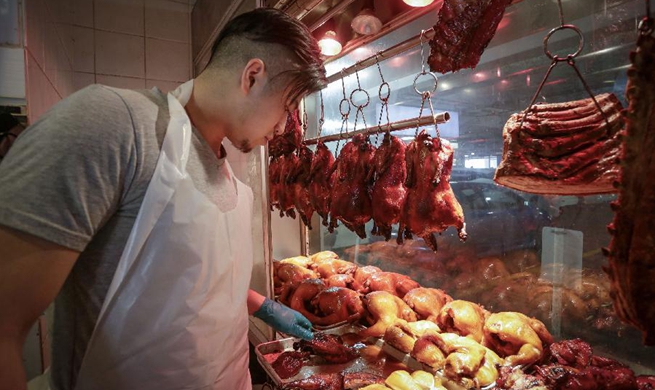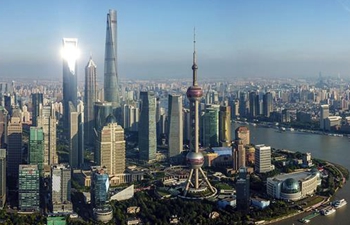BEIJING, June 29 (Xinhua) -- Beijing has begun spraying a nano photocatalyst to eliminate bacteria and odor in its crowded subway trains, Friday's Beijing Youth Daily reported.
Liu Chang, Beijing Subway deputy director in charge of safety and quality, said staff with subway Line 6 have sprayed the photocatalyst on ceilings, seats, windows and armrests in the trains since the beginning of June. It is expected that all 64 trains on the line will be purified by next week.
Photocatalyst is a substance that can help cause a light-catalyzed reaction, such as chlorophyll capturing sunlight to turn water and carbon dioxide into oxygen and glucose in photosynthesis.
Utilizing nanotechnology, the nano photocatalyst, colorless and odorless, can decompose indoor wastes such as formaldehyde and toluene, which have been known to cause cancer. The photocatalyst has been widely used to purify air for display rooms and new cars.
As a major artery of Beijing's subway network, Line 6 carries approximately one million passengers every day. It runs through downtown Beijing from east to west, and has 26 stations, including nine interchange stations.
As temperatures keep rising, passengers often complain about unpleasant smell of sweat in the crowded cars, which even the cooling system can not remove, according to Liu.
A third-party evaluation has showed that the photocatalyst can improve the indoor air quality and reduce bacteria by 80 percent.
Liu said that the photocatalyst on a subway train is effective for three months. The method will be used on more subway lines in the future.






